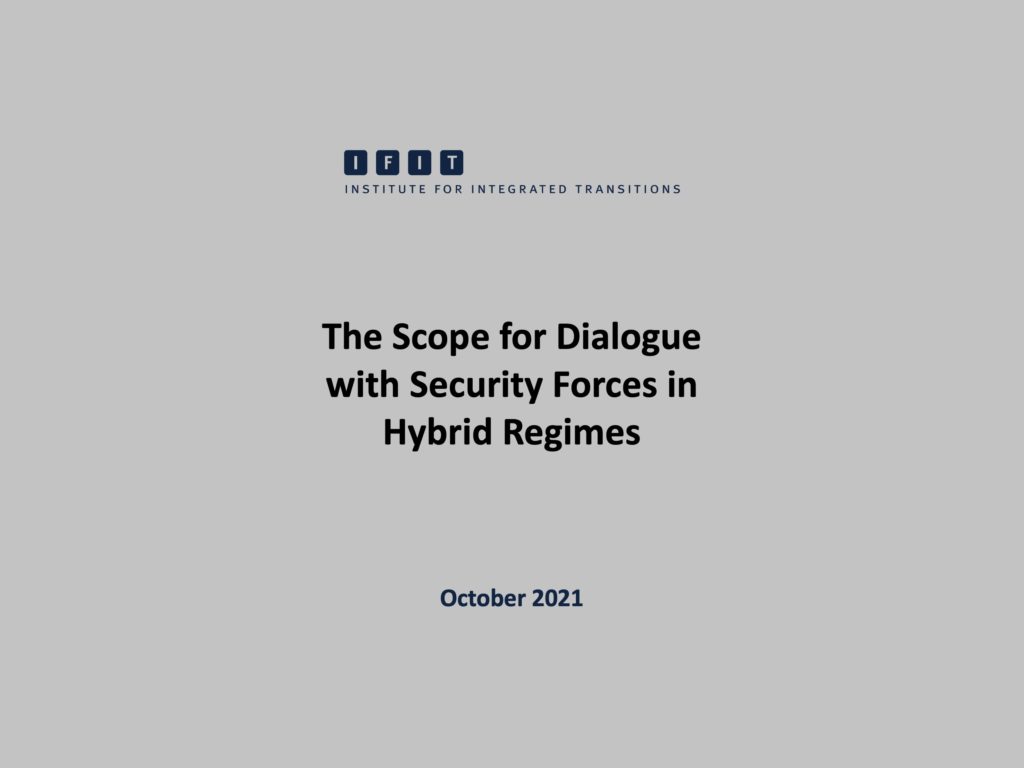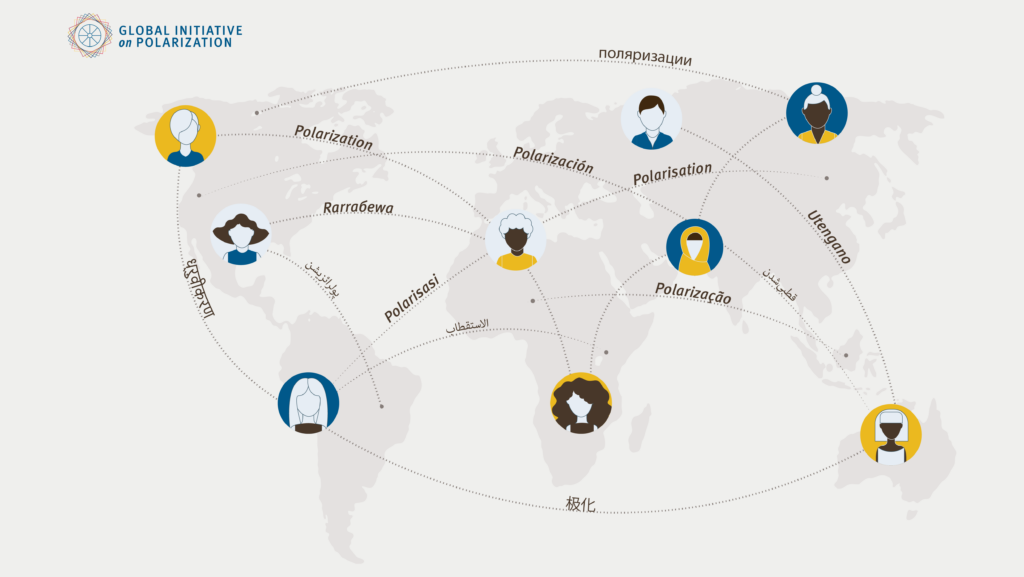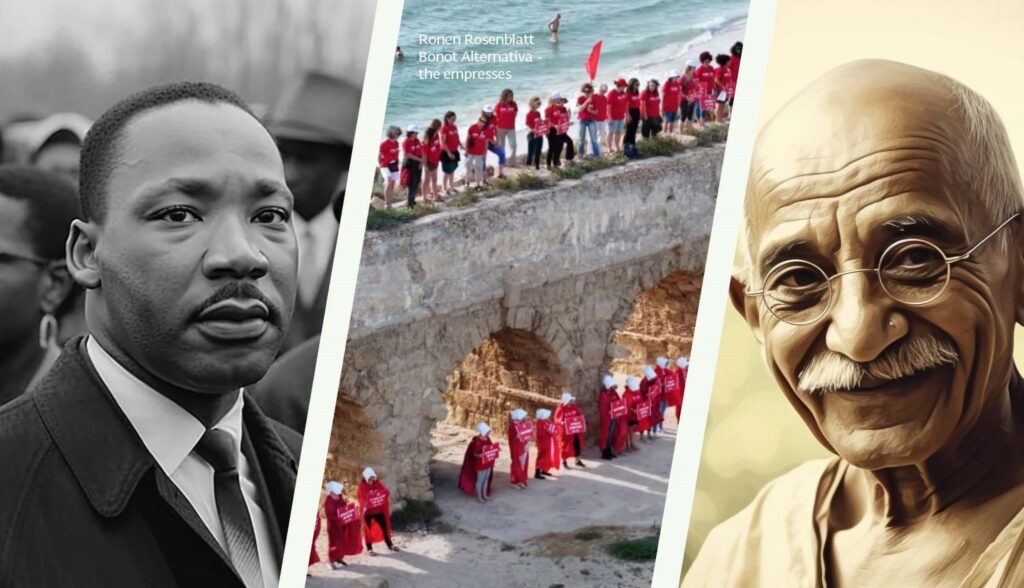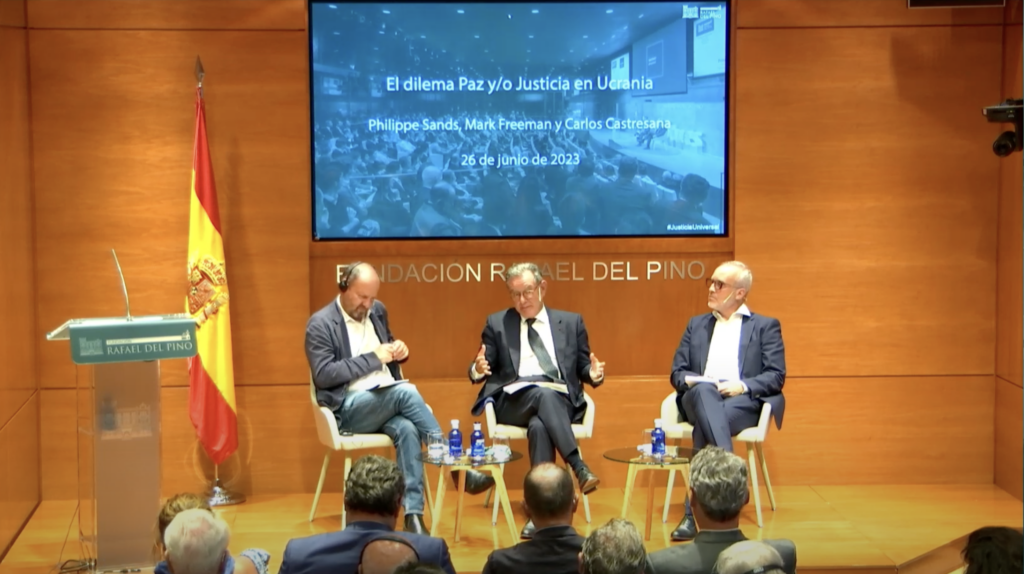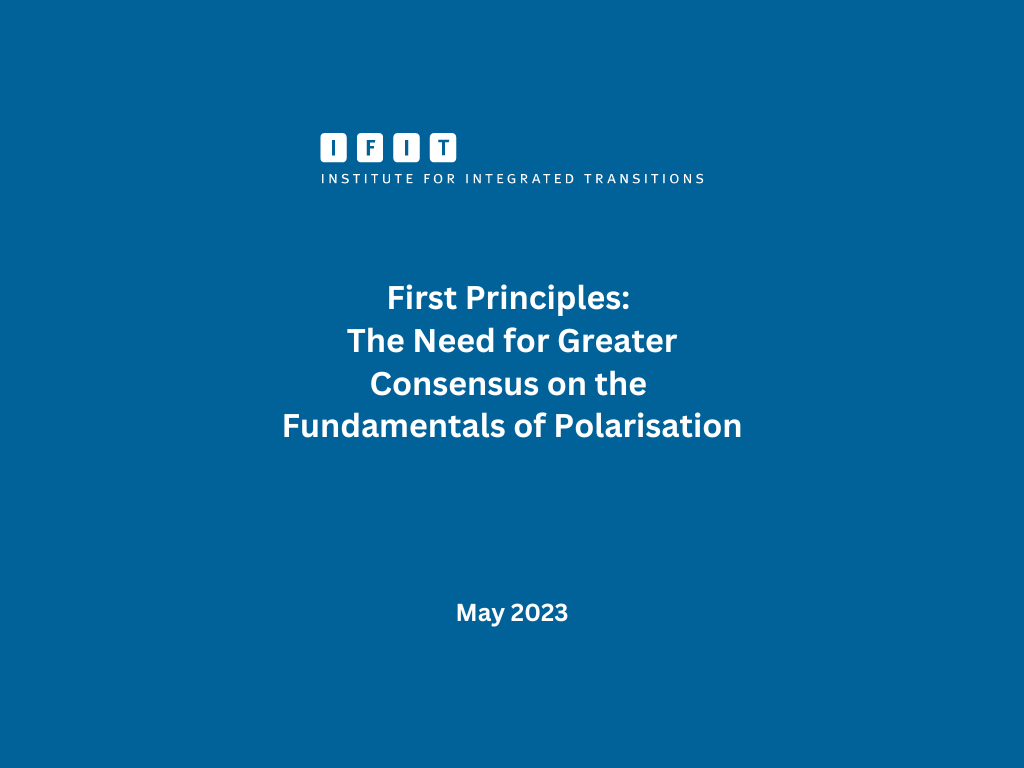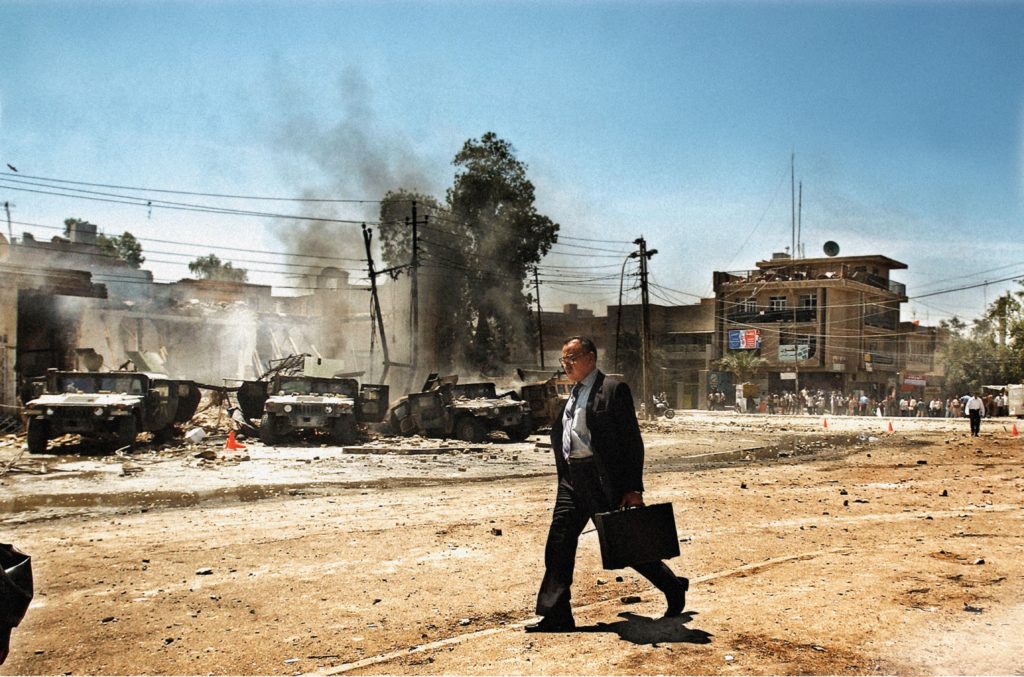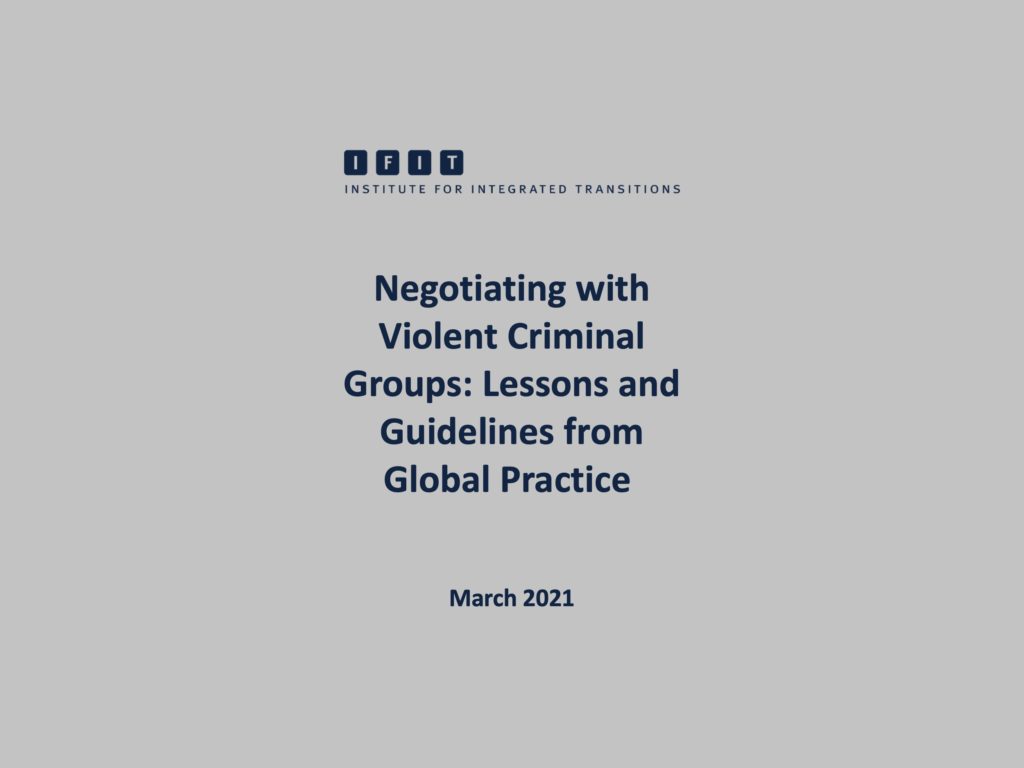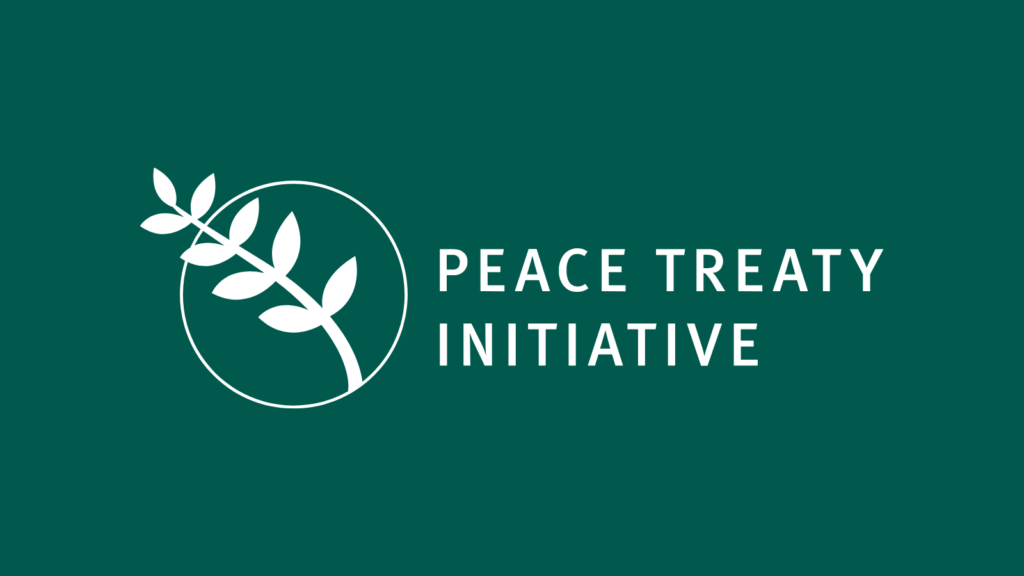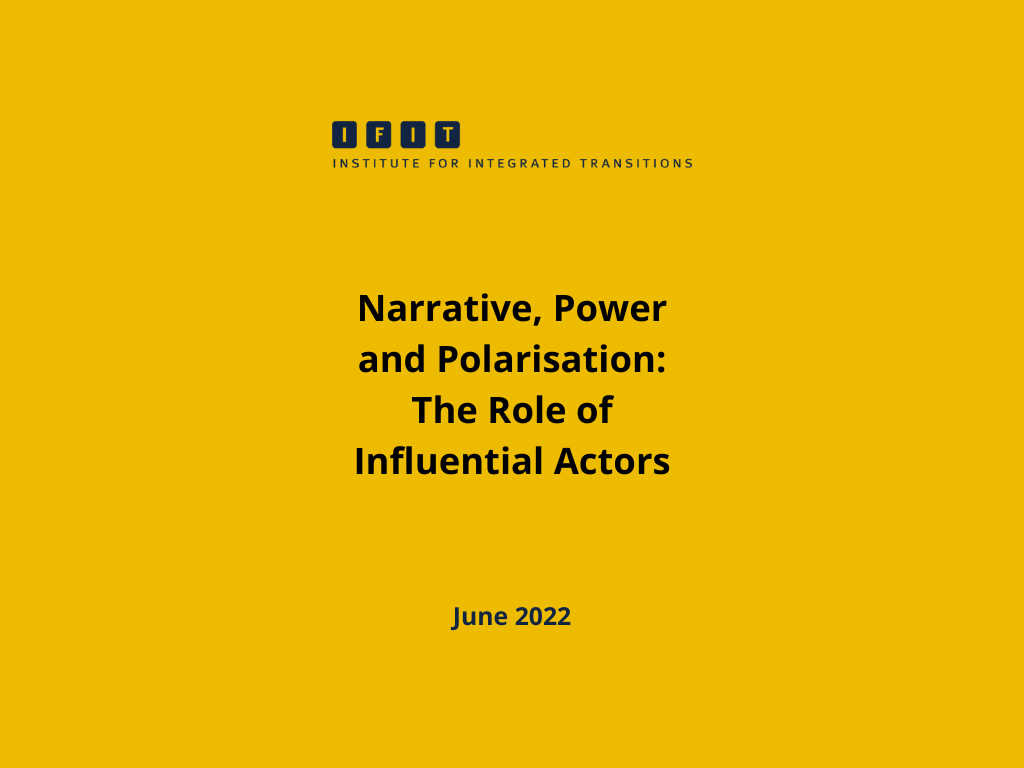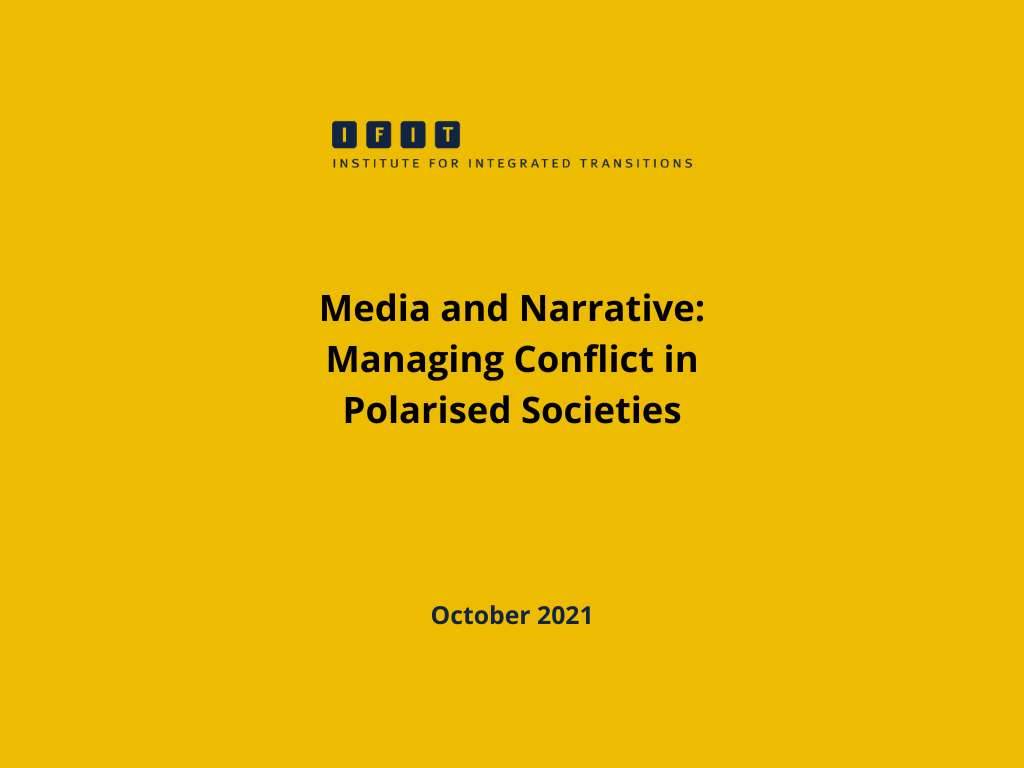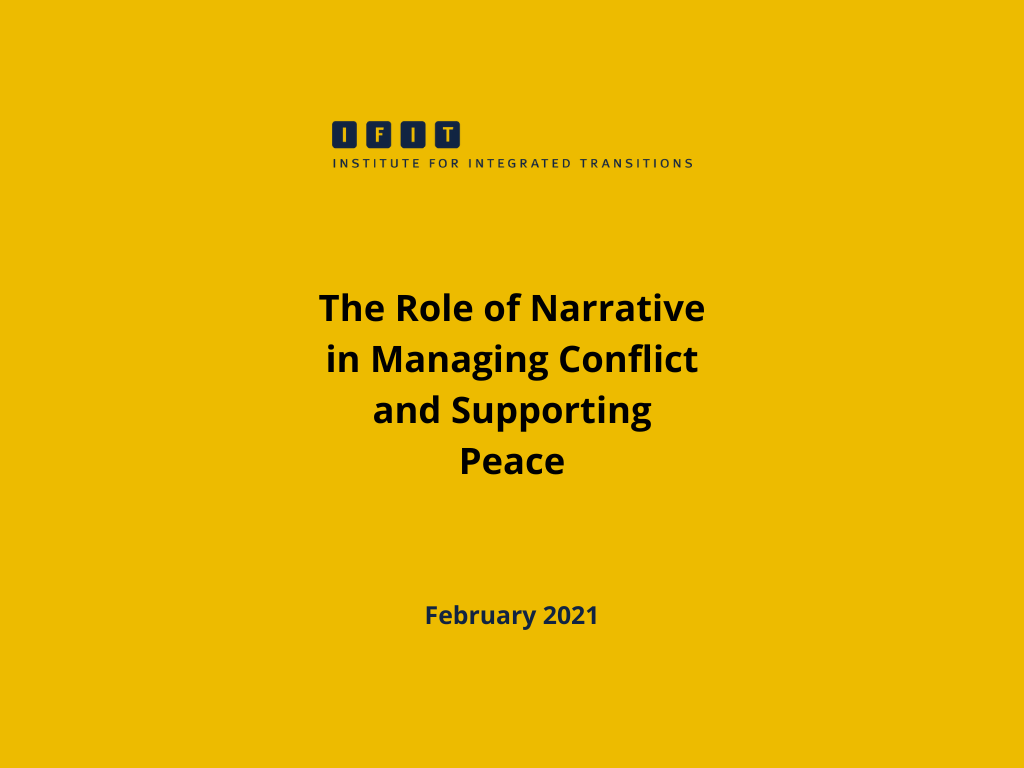Language: English
IFIT is delighted to announce that it has been awarded a research grant as part of the 2023 United States Institute of Peace (USIP) grant competition.
IFIT’s research aims to build on key concepts developed in our agenda-setting publication on The Scope for Dialogue with Security Forces in Hybrid Regimes. A central finding of that paper was that, in hybrid regime contexts, civic actors interested in constructive dialogue with state security actors tend to encounter major roadblocks in their efforts at outreach and engagement.
Our new research will analyse multiple country case studies and translate findings into dialogue tools and strategies that can be used by human rights practitioners. The research will focus on 1) hybrid regimes and how they operate; 2) the conditions and causes of dialogue and engagement opportunities between state security and civic actors; 3) comparative outcomes of engagement (short, mid and long-term); and 4) how existing global democracy and human rights training programmes might be improved to address structural features of hybrid regimes.
To learn more about IFIT’s research on hybrid regimes, please contact [email protected]
You may also be interested in
Eric Emmanuel Duarte Gamboa is a Research Associate at the Institute for Integrated Transitions (IFIT) and based in Mexico.
Prior joining IFIT, Eric worked at the Mexican Ministry of Foreign Relations (SRE) as a Specialist on Multilateral Resolutions, where he conducted political analyses and drafted diplomatic statements on humanitarian issues during Mexico’s membership in the United Nations Security Council in 2021 and 2022. Eric has six years of experience in diplomatic affairs and strategic partnerships, supporting the participation of Mexico in the Organization of American States; leading the establishment of the Ibero-American Network of Women Mediators; and organizing key events like the first Mediation Retreat of the Oslo Forum for Latin America and the Caribbean in 2023.
Eric holds a Bachelor’s degree in International Relations from Anahuac University, a Diploma of Advanced Studies in International Human Rights Law and International Humanitarian Law from the American University Washington College of Law, and is currently pursuing a Master’s degree in Human Rights and Guarantees at the Autonomous Technological Institute of Mexico (ITAM).
Working languages: English and Spanish
You may also be interested in
Media and Narratives: Building Peace in Polarised Societies
In this 30-minute video, members of IFIT’s Inclusive Narratives Practice Group – Refik Hodzic, Moky Makura and Miguel Silva – draw on their extensive experience working in journalism and communications in the Balkans, the Middle East, Africa and Latin America to reflect on the role of the media in either driving or mitigating polarisation and conflict.
Using examples from different country contexts, Refik, Moky and Miguel discuss polarisation as a deliberate tactic deployed, for example, during election campaigns; ways in which political and economic elites use the media to secure their interests in democratic and authoritarian contexts; and the normalisation of dehumanising language even in media outlets once considered bastions of unbiased reporting. They note the rise of disinformation and misinformation, and the contribution of targeted digital and social media content to the increasing simplification of stories and thereby narratives.
Reflecting on opportunities, the panellists point to polarisation often being more of an issue in political rhetoric and the media than on the ground; the continuing relevance of reporting that critiques power; and the instructive diversity of types of media content in different countries, including how it enables the voices of young people to be heard. They share strategies for holding the media accountable for inciting violence, funding independent media, promoting content on the rich middle ground between polarised positions, and fostering the use of depolarising language among key actors to enrich narrative landscapes.
This video extends the practical guidance in IFIT’s discussion paper on media and narrative, which proposes approaches for ensuring the media reduces the influence of dominant simplified narratives and amplifies a multiplicity of complex stories that encourage peacebuilding in divided contexts.
Job Vacancy – Consultant
Role: Conducting a comprehensive mid-term evaluation on the effectiveness, relevance and impact of IFIT’s Regional Programme for Latin America and the Caribbean.
About IFIT
Headquartered in Barcelona, the Institute for Integrated Transitions (IFIT) is an international
non-governmental organisation dedicated to helping fragile and conflict-affected states
achieve more sustainable negotiations and transitions out of war, crisis or authoritarianism.
IFIT’s core work is to serve as an expert resource on integrated policy solutions for locally
led efforts to break cycles of conflict or repression.
IFIT is currently seeking a qualified and experienced Consultant or Consultancy Firm to conduct a mid-term evaluation of our Regional Programme for Latin America and the Caribbean, funded by the Swedish International Development Agency (Sida).
Key Requirements:
- Demonstrated track record in conducting reviews and results-based monitoring, especially with NGOs and in fields such as conflict resolution and peacebuilding.
- Research experience and the ability to analyse qualitative and quantitative data and compile and summarise results.
- Strong writing and communication skills in Spanish. Communication skills in English are desirable.
- Experience working in Latin American countries (with emphasis on Colombia, Venezuela, and Mexico).
How to Apply:
Interested consultants/firms are invited to review the detailed Call for Proposals and submit their proposals by April 15, 2024. Proposals should be sent via email to María José Daza [email protected] with the subject line “Mid-term Evaluation Proposal – [Your Organization’s Name]”.
You may also be interested in
Olivia Helvadjian is the Head of Communications at the Institute for Integrated Transitions (IFIT). She is a communications, public relations and advocacy professional with 15+ years of experience in corporate communications, public affairs, advocacy, publishing and social media.
Before joining IFIT, she ran the external communications of the German Chamber of Commerce in Shanghai for nearly a decade. Prior to working in China, she held various roles in communications, lobbying and public affairs at ministries, governmental and private institutions, with focus on the European Union and Asia.
She holds a Masters degrees in Law from the University of Vienna and an LL.M. in international Business Law from the the National University of Singapore. She also earned a diploma in Journalism from the Danube University Krems and an MBA from Hult International Business School.
Working languages: English, German, French.
Conversational skills: Mandarin, Arabic, and Spanish.
You may also be interested in
Rethinking the Negotiation Paradigm: Introducing “Fast-Track” Negotiation
Negotiation is among the best known and most used tools for advancing peace and political transition. Yet, the dominant model of the last few decades is built on methodological premises which, in aggregate, produce slow negotiation.
As IFIT founder and executive director Mark Freeman explains in this one-minute video, a “fast track” model is needed to match the more urgent local change needed in the majority of conflict situations.
Fast-track negotiation will have a greater focus on outcomes over process; on pragmatism over perfectionism. Drawing on research that IFIT has begun carrying out, the fast-track negotiation model will expand the existing toolbox of conflict resolution, thus overcoming the risky reliance on a single, slow model.
More will be said about “fast-track negotiation” in the coming months.
Join the Hub
Thank you for joining IFIT’s Narrative Peacebuilding Hub.
Please fill in the information below if you would like to get in touch or hear from us whenever there is an opportunity to engage.
María Eugenia Brizuela de Ávila, Mayu, is a recognised leader with extensive experience in the public, private and social sector in El Salvador and Latin America. She was the first female Minister of Foreign Affairs of El Salvador (1999-2004) and the first female president of an insurance company and Banco Salvadoreno in 2004. She currently sits on the boards of Banco Davivienda in Honduras and El Salvador, as well as the El Salvador Stock Exchange.
In the social sector, María Eugenia has been a member and director of lawyers’ associations and institutions dedicated to sustainable development such as the Foundation for the Development of Salvadoran Women (FUDEM) and the Salvadoran Foundation for Economic and Social Development (FUSADES). She was the first woman of the Young Presidents Organization (YPO) from Mexico to Panama. She is a member of the Board of Trustees of the Universidad Dr. José Matías Delgado and has served on the International Board of Plan International. She is a Commissioner of the International Commission on Missing Persons (ICMP), and a member of the Advisory Council of the Private Sector Regional Centre in support of the UN Sustainable Development Goals and of the Diplomatic Academy Council of the Salvadoran Ministry of Foreign Affairs and the Aspen Ministers Forum.
Throughout her career, she has received multiple awards such as the Distinguished Professional Award from Dr. José Matías Delgado University and the 2007 Golden Palm, the highest award from the Chamber of Commerce and Industry of El Salvador. In 2020 she was named one of the 100 most influential women in Central America and the Caribbean by Forbes Magazine.
María Eugenia holds a degree in legal sciences from the Universidad Dr. José Matías Delgado, an MBA from the Instituto Centroamericano de Administración de Empresas (INCAE) and a postgraduate degree in Sustainable Business from the University of Cambridge.
You may also be interested in
This IFIT publication offers simplified technical guidance directed to any good-faith promoter of formal negotiation with one or more violent criminal groups when the proposed endgame of the negotiation is to reduce or end the criminal violence in question. In doing so, the paper draws on key ideas developed in IFIT’s ground-breaking report, Negotiating with Violent Criminal Groups: Lessons and Guidelines from Global Practice (Freeman & Felbab-Brown, 2021), which covers the most diverse set of negotiations with criminal groups ever examined in one place.
The first part of the paper examines threshold questions a good-faith promoter would be wise to consider before outwardly exploring or proposing any negotiation involving a criminal group; the second part discusses internal and external actions a good-faith promoter ought to contemplate as part of any initial phase of formal engagement or negotiation with members of a criminal group.
The DOI registration ID for this publication is: https://doi.org/10.5281/zenodo.10554933
You may also be interested in
This narrative case study illustrates the ideas and practices in IFIT’s narrative framework by putting them in a specific country context. In the spring of 2021, Colombia experienced the most widely supported and violent national protests it had seen in decades. The protests were embedded in a national narrative landscape full of stories about how the protests formed, who the main actors were, and which values circumscribed the actions they took. The dominant narratives were rooted in over 50 years of armed conflict in Colombia, which the 2016 peace agreement between the government and the rebel FARC-EP was intended to end.
The case study demonstrates, among other things, the role key events can play in bringing simplified polarising narratives in the public eye, eclipsing other narratives and incentivising violence. It discusses concrete examples of dialogue processes between opposing actors in the 2021 national protests that enabled them to find shared solutions to their grievances and transform their polarising narratives, but which were not very visible to the public. Based on first-hand interviews, focus group discussions and analyses of traditional and social media content, the study shows how narratives can drive conflict as well as contribute to peaceful engagement.
You may also be interested in
